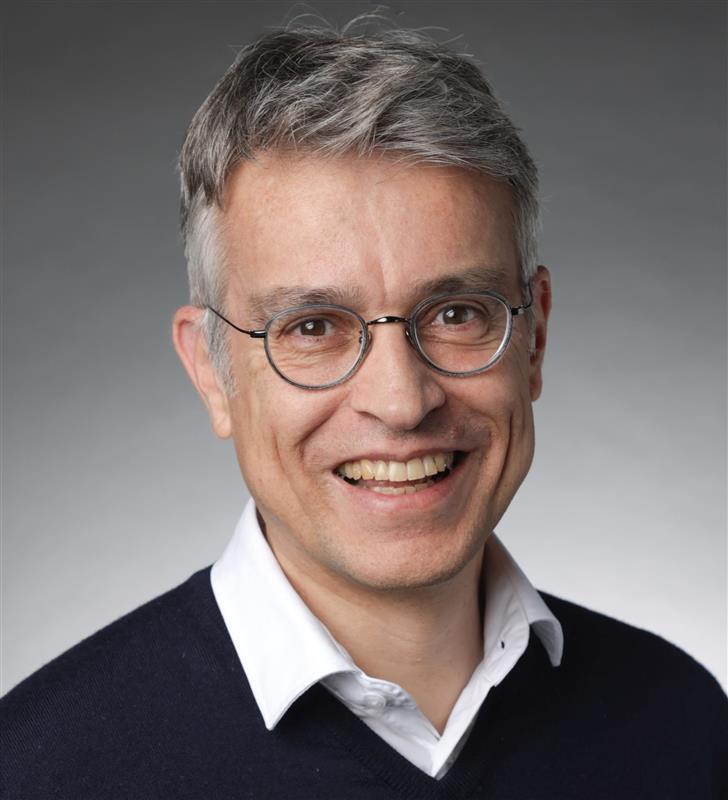IEEE MRS 2025
Keynote speakers
Alcherio Martinoli

Title
Gas Sensing using Robots: Challenges, Achievements, and Lessons
Date & Time
4 December 2025, 3.15PM
Abstract
Finding sources of gas or particle compounds released in the air, mapping their spatial distribution, and discriminating among volatile substances using robotic systems find several applications in various, often critical, situations. For instance, localising dangerous leaks inside infrastructural or industrial installations, mapping particle distributions in emergency scenarios such as wildfires, searching for explosives in humanitarian demining operations or survivors in case of natural catastrophic events, and long-term air quality monitoring of indoor and outdoor settings are a few canonical examples of these applications. Sensing, tracking, and mapping plumes as well as finding their sources is challenging, not only because of the dynamicity and stochasticity of the associated environmental transportation phenomena but also because of potential measurement perturbations generated by the mobility of the robotic sensing system. Moreover, multi-robot sensing systems play an important role in this area as typically the volume to be monitored is much larger than the field of sensing associated to individual robotic nodes, therefore enabling significant speeding up of the search and/or mapping mission. In this seminar, I will illustrate with multiple concrete examples our 25-year long experience in this area, emphasising as much as possible multi-robot solutions adopted for the problems mentioned above.
Biography
Alcherio Martinoli has a MSc in Electrical Engineering from the Swiss Federal Institute of Technology in Zurich (ETHZ), and a PhD in Computer Science from the Swiss Federal Institute of Technology in Lausanne (EPFL). He is currently a Full Professor at EPFL, leading the Distributed Intelligent Systems and Algorithms Laboratory. Before joining EPFL he carried out research activities at the Institute of Biomedical Engineering of the ETHZ, at the Institute of Industrial Automation of the Spanish Research Council in Madrid, Spain, and at the California Institute of Technology, Pasadena, USA. His research interests focus on methods to design, control, model, and optimise distributed cyber-physical systems, including multi-robot systems, sensor and actuator networks, and intelligent vehicles.
Lorenzo Sabattini

Title
Turning Many Agents into One Team: Distributed Control for Real-World Multi-Robot Systems
Date & Time
5 December 2025, 3.15PM
Abstract
The increasing complexity of real-world environments calls for robot teams capable of operating autonomously, collaboratively, and in close interaction with human users. This talk will present a unified perspective on distributed control strategies for multi-robot systems, emphasising how distribution, heterogeneity, and human–robot interaction enable robust, scalable, and adaptive behaviours. The talk will discuss recent advances in human-aware coordinated motion, as well as traffic prediction and management in industrial environments, where fleets of mobile robots must coordinate efficiently under uncertainty, congestion, and dynamic constraints. Finally, the talk will address distributed estimation and control approaches that allow robot teams to jointly sense and reconstruct spatial processes, demonstrating the power of collective intelligence in monitoring and decision-making tasks.
By combining these threads, the talk highlights how principled distributed control design can orchestrate large-scale robot collectives that leverage individual capabilities, adapt to human presence, and tackle tasks beyond the reach of single robotic platforms. The insights aim to inspire new research directions in autonomous collaboration, resilient coordination, and scalable deployment of heterogeneous multi-agent systems.
Biography
Lorenzo Sabattini received the BSc and MSc degrees in mechatronic engineering from the University of Modena and Reggio Emilia, Italy, in 2005 and 2007, respectively, and the PhD degree in control systems and operational research from the University of Bologna, Italy, in 2012. In 2010, he was a Visiting Researcher with the University of Maryland, College Park, MD, USA. He has been an Associate Professor with the Department of Sciences and Methods for Engineering, University of Modena and Reggio Emilia, since 2018. His research interests include multirobot systems, decentralized estimation and control, and mobile robotics. He was the Founding Co-Chair of the IEEE RAS Technical Committee on Multi-Robot Systems and served as the corresponding co-chair from 2014 to 2021. He served as an Associate Editor for IEEE Robotics and Automation Letters from 2015 to 2018 and IEEE Robotics and Automation Magazine from 2017 to 2019. He has also served as an Editor for IEEE ICRA and IEEE/RSJ IROS conferences and as an Associate Editor for The International Journal of Robotics Research (IJRR).
